You won’t believe this, but my dog ate a grape just last week! I immediately remembered what people had been telling me all my life, that dogs can’t eat grapes! I looked at my little 7.5-pound Yorkie in horror. He’s not much bigger than a grape! What to do? I called my vet immediately to find out if there's any truth to the rumor or if it's just an old wives’ tale.
They didn’t tell me to bring him in, but they did tell me what I should do. I had to keep an eye on Mason — like I would let him out of my sight after that! If you’re wondering why I wasn’t watching him better in the first place, you must not have a dog! You can be looking straight at him, and he'll just be a blur as he grabs for whatever there is in the room that he isn’t supposed to have. He'll watch my face for (non)permission, listen for my swift intake of breath, and know it’s not supposed to be his — then he'll run like the wind!
Fortunately, my baby boy is doing well now, but it made me want to research everything about whether or not grapes are bad for dogs.
Can Dogs Eat Grapes?
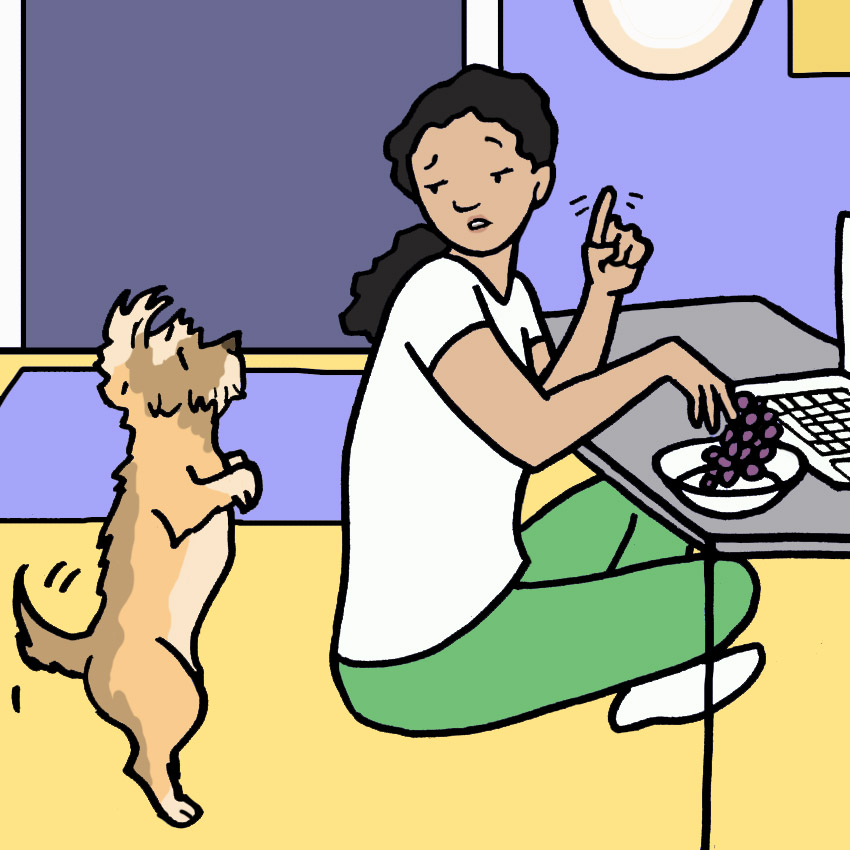
No, dogs cannot eat grapes. If you’ve seen a dog push one around with his nose and just play with it, just be thankful they didn't eat it. My dog will eat anything, so this doesn’t apply to him.
What Kinds Of Grapes Are Bad For Them?
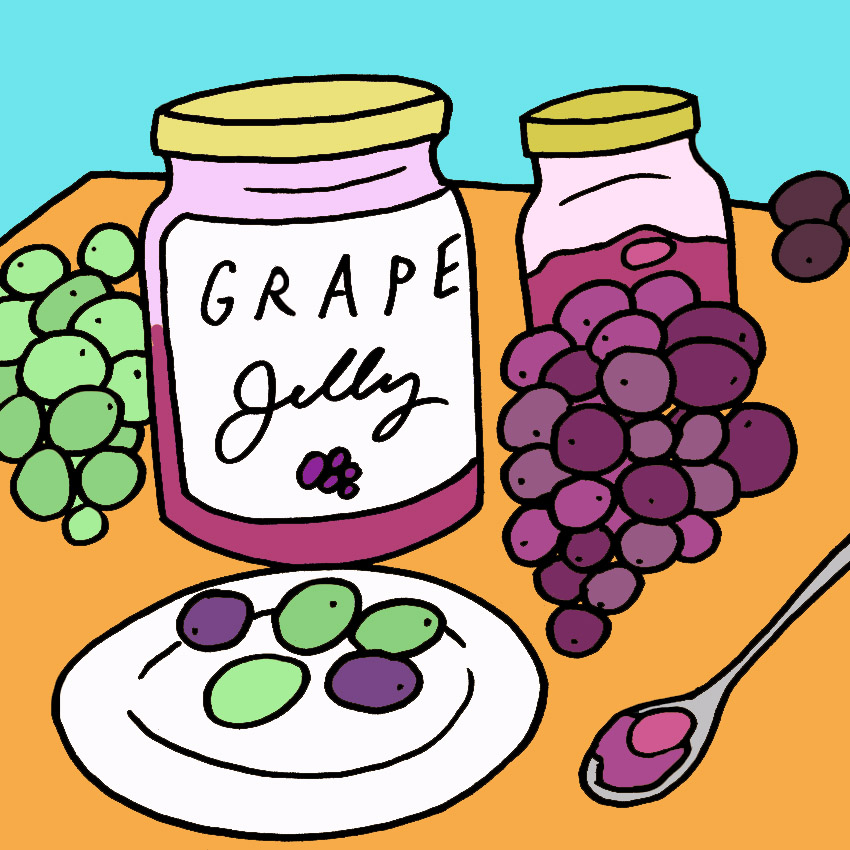
It doesn’t matter whether the grapes are green or red or black, whether they have seeds or not, dogs cannot safely eat any grapes. Can they eat grape jelly, grape compote, or anything else grape? No, it is not safe! Dr. Jessica Potosky tells LittleThings: “No! Dogs cannot eat grapes or raisins of any type or variety — this includes grape jelly and grape juice.”
Why Are Grapes Bad For Dogs?
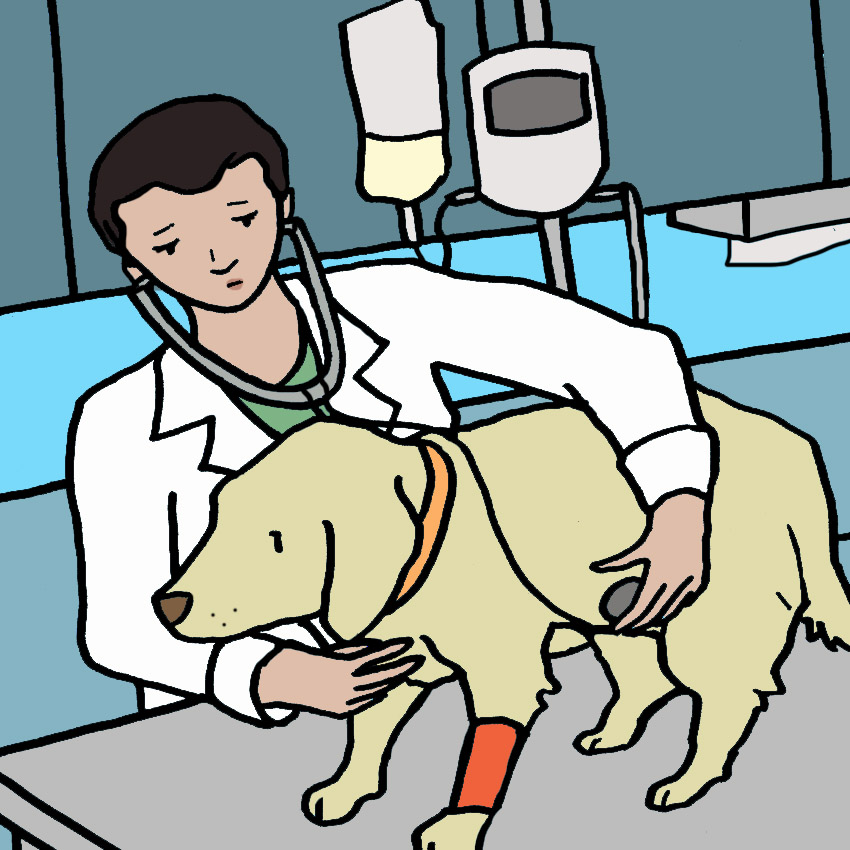
Grapes and raisins can cause kidney failure in dogs. According to PetMD, kidney failure can occur in some dogs who eat grapes or raisins, leading to a lack of urine production.
What Happens If A Dog Eats A Grape?
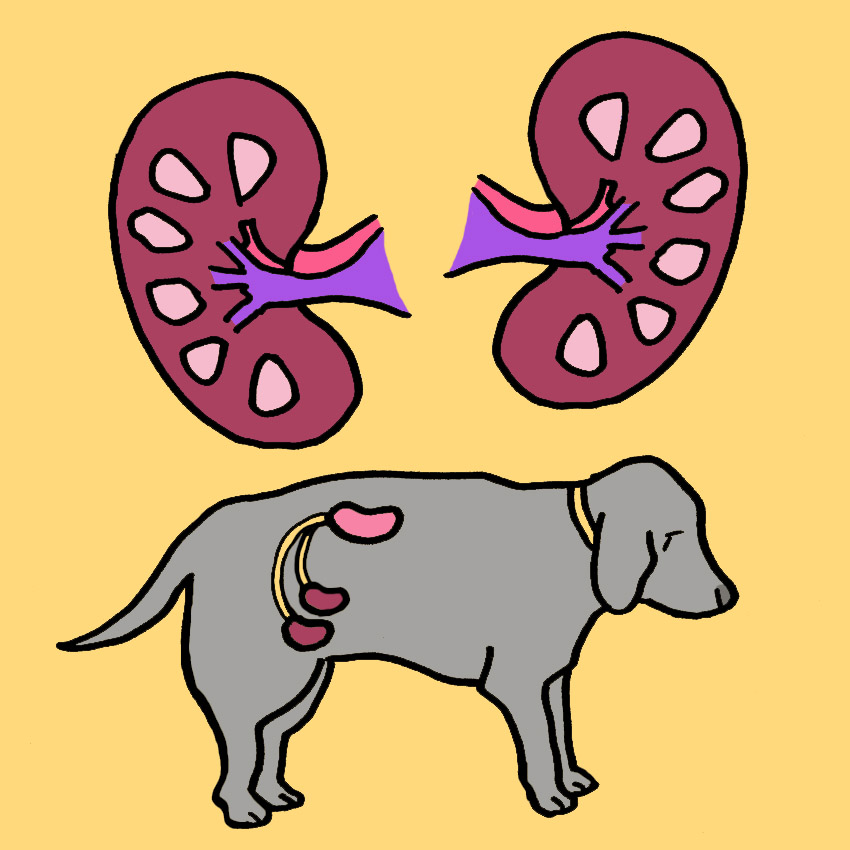
Dr. Potosky tells LittleThings that grapes and raisins cause kidney failure in dogs, but “we do not know the mechanism or action behind it.” Research has not yet determined exactly which substance in grapes (and therefore raisins, because raisins are just dried grapes) causes poisoning.
According to the Handbook of Small Animal Toxicology and Poisonings via Dr. Potosky, “ingesting amounts as low as 0.4 ounces per kilogram of body weight can cause clinical signs of renal failure.” Even small amounts can prove to be fatally toxic for your dog. Asking how many grapes a dog can safely eat is like asking how much arsenic you can safely take. It is not a good idea for your dog to eat any grapes or raisins or anything containing them.
What Are The Signs That Something Is Wrong?
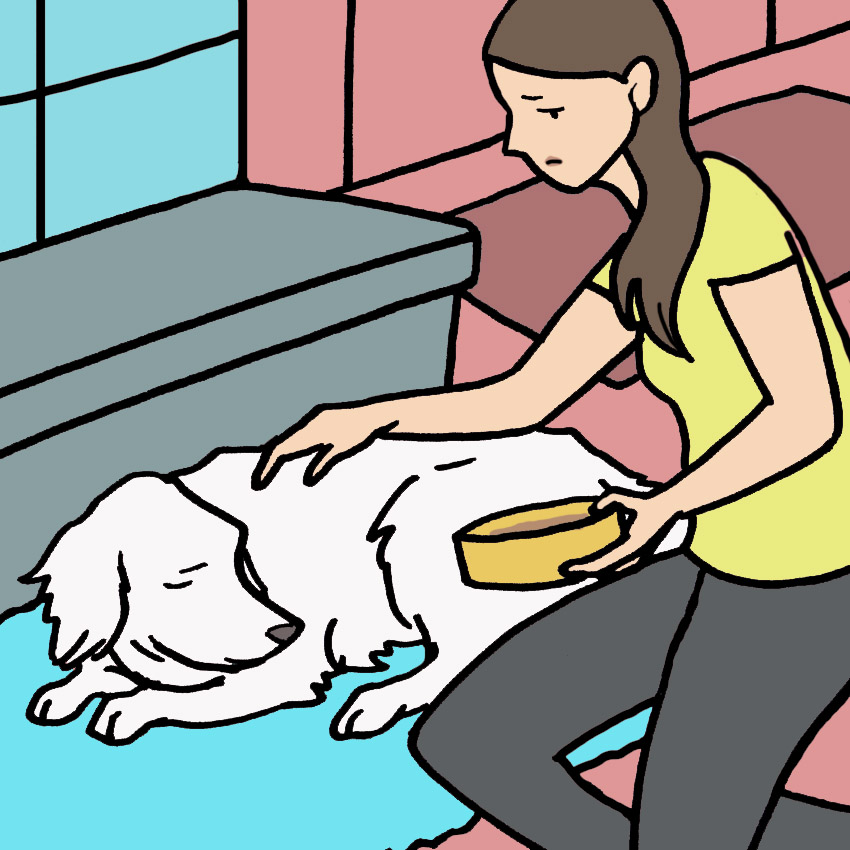
When a dog eats grapes or raisins, the first sign is lethargy or tiredness, followed by not producing urine. She will not urinate as frequently as she usually does and she may drink excessive amounts of water, since she is becoming dehydrated. She also will not have an appetite for food, and she may vomit or have diarrhea. Any or all of these symptoms will usually begin several hours after she has consumed the fruit.
My Dog Ate A Grape! What Do I Do?
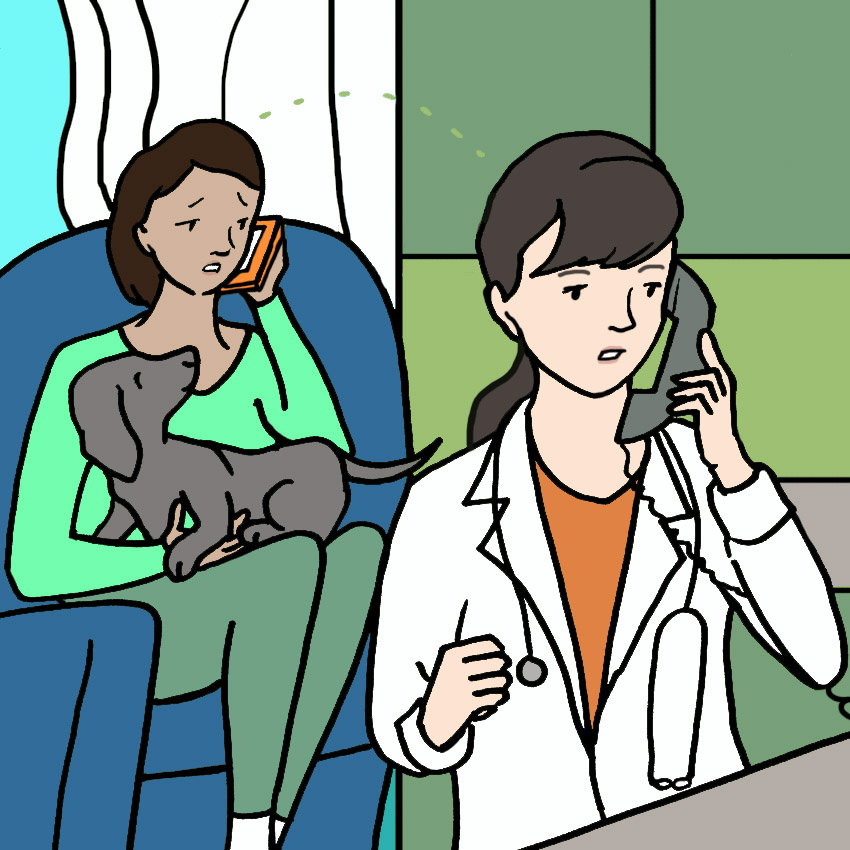
Dr. Potosky stresses the importance of contacting your vet immediately if your dog has eaten grapes or raisins, and the vet will decide if decontamination is necessary. This consists of “inducing vomiting and using activated charcoal to limit the amount of absorption in the gastrointestinal tract.”
The doctor will probably also do a urinalysis and bloodwork to assess the health of the kidneys. It is possible that IV fluids and hospitalization will be needed to keep your dog hydrated. “In the worst cases, pets can have dialysis until their kidneys heal,” but this is performed only in specialized locations; in North Carolina for example, it is done only in one place, at the North Carolina State University Veterinarian School.
As you can see, it is not an old wives’ tale or just a rumor that grapes and raisins are extremely poisonous for your best friend. I was so glad to get relief for my dog, and I know now to be so extra careful that this fruit and its relatives stay out of reach of my little dog! I hope you’ll do the same.
If this article helped you protect and take care of your dog, please SHARE it with your friends and fellow dog lovers.




